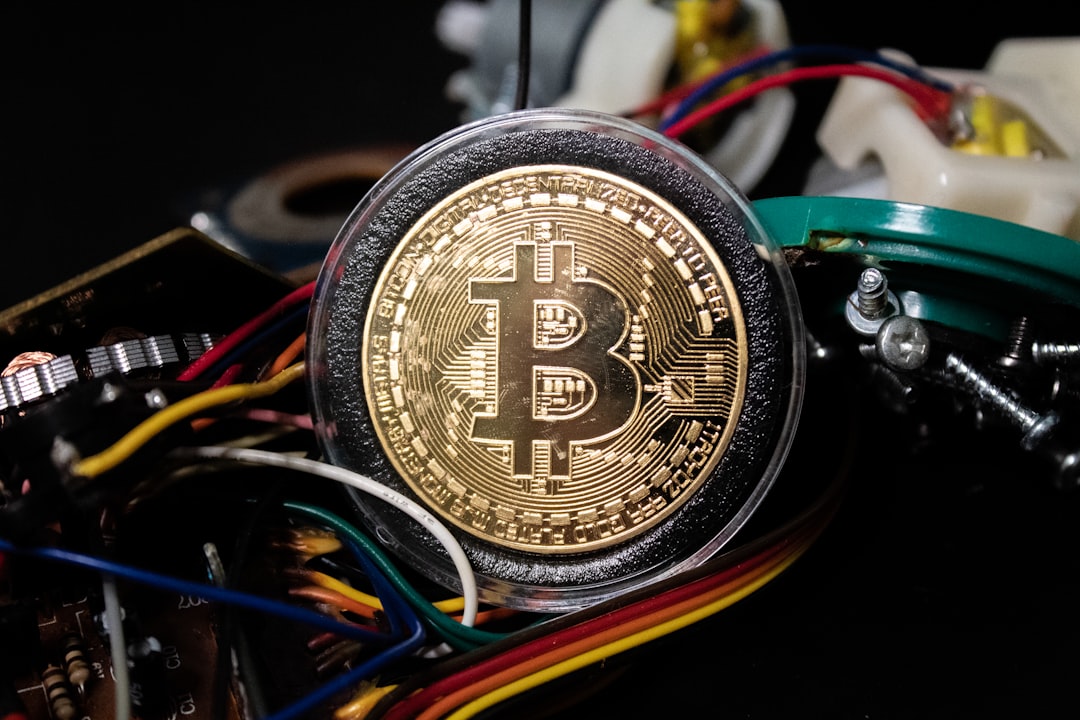Welcome to our blog post on the fascinating world of Decentralized Finance (DeFi)! If you’re curious about the advancements and innovations happening in the cryptocurrency industry, then you’ve come to the right place. In this blog post, we will dive deep into the concept of DeFi, explore its benefits and challenges, discuss future trends and innovations, and ponder the potential impact it may have on traditional financial systems.
Decentralized Finance, often referred to as DeFi, is a rapidly growing and evolving sector within the cryptocurrency industry. It encompasses a wide range of financial applications and services that operate on decentralized networks, usually based on blockchain technology. Unlike traditional finance systems that rely on intermediaries like banks, DeFi aims to create an open and accessible financial infrastructure that is transparent, secure, and inclusive for everyone.
So, what exactly sets DeFi apart from traditional financial systems? The answer lies in its underlying principles and technologies. DeFi applications leverage smart contracts, which are self-executing agreements with predefined rules stored on a blockchain. These smart contracts enable the automation of various financial processes, eliminating the need for middlemen and reducing the associated costs and inefficiencies.
In addition to smart contracts, DeFi also relies on decentralized networks and protocols to decentralize control and decision-making. This decentralized nature ensures that no single entity has complete control over the system, promoting transparency and reducing the risk of manipulation or censorship.
As we explore the world of DeFi, we will uncover the numerous benefits it offers to both individuals and the cryptocurrency industry as a whole. From increased financial inclusion and accessibility to improved efficiency and security, DeFi has the potential to revolutionize the way we interact with and manage our finances.
However, as with any emerging technology, DeFi also comes with its fair share of challenges and risks. We will delve into these potential pitfalls to gain a comprehensive understanding of the obstacles that need to be overcome for DeFi to reach its full potential.
Looking ahead, we will also discuss the future trends and innovations in DeFi. The cryptocurrency industry is constantly evolving, and new ideas and technologies are emerging at a rapid pace. By exploring these developments, we can gain insights into the direction in which DeFi is heading and the exciting possibilities that lie ahead.
Lastly, we will explore the potential impact of DeFi on traditional financial systems. As DeFi continues to gain traction and popularity, it poses both opportunities and challenges for the traditional banking sector. We will examine the potential disruptions and transformations that may occur as DeFi starts to encroach on the domain of traditional finance.
So, fasten your seatbelts and get ready for an exhilarating journey into the world of Decentralized Finance. Whether you’re a cryptocurrency enthusiast, a financial professional, or simply someone curious about the future of finance, this blog post will provide you with valuable insights and ignite your curiosity about the endless possibilities of DeFi.
Now, let’s dive in and explore the captivating world of Decentralized Finance!
What is Decentralized Finance (DeFi)?
Welcome to part 2 of our blog series on decentralized finance (DeFi)! In this section, we’ll dive into the world of DeFi and explore what it truly means.
Decentralized finance, commonly referred to as DeFi, is a revolutionary concept that aims to transform the traditional financial landscape. At its core, DeFi leverages blockchain technology and smart contracts to provide financial services in a decentralized manner. This means that intermediaries such as banks, insurance companies, and other traditional financial institutions are no longer needed to facilitate transactions.
With DeFi, financial services become accessible to anyone with an internet connection, regardless of their location or socio-economic background. It eliminates the need for expensive intermediaries, reduces bureaucracy, and empowers individuals to have full control over their financial assets.
One of the key aspects of DeFi is its open and permissionless nature. Traditional financial systems often require individuals to go through a series of bureaucratic procedures and meet certain eligibility criteria to access financial services. In contrast, DeFi applications are open to anyone, allowing users to interact with the protocols and services without any gatekeepers or restrictions.
DeFi offers a wide range of financial products and services, including lending and borrowing platforms, decentralized exchanges (DEXs), stablecoins, yield farming, and more. These services operate on public blockchains like Ethereum, leveraging the power of smart contracts to execute transactions automatically, transparently, and securely.
What makes DeFi truly exciting is its ability to create an entirely new financial ecosystem that is driven by the community. Anyone can participate in the development and governance of DeFi protocols by holding and staking their tokens. This empowers individuals to have a say in the decision-making process and ultimately shape the future of the DeFi space.
As DeFi continues to evolve, it has the potential to disrupt and revolutionize various sectors within the traditional financial industry. Its decentralized nature eliminates the need for intermediaries, making financial services more efficient, cost-effective, and accessible to individuals around the world.
In the next section of our blog series, we’ll explore the benefits of decentralized finance in the cryptocurrency industry. Stay tuned!
Decentralized finance, commonly referred to as DeFi, is a revolutionary concept that aims to transform the traditional financial landscape.
Benefits of Decentralized Finance in the Cryptocurrency Industry
Decentralized Finance, or DeFi, has gained significant traction in the cryptocurrency industry over the past few years. It has brought forth a new wave of innovation, disrupting traditional financial systems and offering a plethora of benefits to users. In this section, we will explore some of the remarkable advantages that DeFi brings to the table.
One of the primary benefits of DeFi is its ability to provide financial services to individuals who were previously excluded from traditional banking systems. In many parts of the world, access to basic financial services such as banking, loans, and insurance is limited or even nonexistent. However, with DeFi, anyone with an internet connection can participate in a wide range of financial activities without the need for intermediaries.
In addition to inclusivity, DeFi also offers unprecedented transparency. Traditional financial systems often lack transparency, leaving individuals unsure about how their money is being managed and invested. With DeFi, every transaction is recorded on a public blockchain, making it visible and auditable by anyone. This level of transparency not only builds trust but also reduces the chances of fraud and manipulation.
Furthermore, DeFi eliminates the need for intermediaries, such as banks or insurance companies, which often charge exorbitant fees for their services. By cutting out these middlemen, DeFi lowers transaction costs significantly. This means that users can transfer funds, invest, or borrow money at a fraction of the cost compared to traditional financial systems. It democratizes access to financial services and empowers individuals to have more control over their own wealth.
Another noteworthy benefit of DeFi is its potential for innovation. Since the underlying technology is built on blockchain, developers have the ability to create smart contracts and decentralized applications (DApps) that can automate and execute financial transactions without human intervention. This opens up a world of possibilities, ranging from decentralized lending platforms to prediction markets and decentralized exchanges. The speed, efficiency, and flexibility that DeFi brings to the table enable the creation of innovative financial products and services that were previously unimaginable.
Furthermore, DeFi also promotes financial freedom and ownership. Traditionally, individuals had to rely on centralized financial institutions to hold and manage their assets. This meant that they were subject to the rules and regulations imposed by these institutions. However, with DeFi, individuals have full control over their assets through the use of digital wallets and private keys. This eliminates the risk of funds being frozen or seized by a third party, giving individuals complete ownership and control over their financial futures.
Lastly, DeFi fosters a sense of community and collaboration. It encourages individuals to come together and participate in decentralized networks, where they can contribute their assets, knowledge, and expertise. This collaborative nature allows for the sharing of ideas and the creation of new financial systems that benefit everyone involved. It promotes a sense of empowerment, as individuals can actively shape the future of finance and be part of a global movement towards a more inclusive and fair financial system.
The benefits of DeFi in the cryptocurrency industry are vast and transformative. It brings inclusivity, transparency, cost efficiency, innovation, financial freedom, and community collaboration to the forefront. As we dive deeper into the world of decentralized finance, we can’t help but marvel at the immense potential it holds. Whether you are an individual seeking financial autonomy or a developer looking to revolutionize the industry, DeFi offers endless possibilities and paves the way for a more decentralized and democratized future of finance.
The speed, efficiency, and flexibility that DeFi brings to the table enable the creation of innovative financial products and services that were previously unimaginable.
Challenges and Risks Associated with Decentralized Finance
While Decentralized Finance (DeFi) offers numerous benefits and opportunities, it also presents various challenges and risks that need to be considered. These challenges arise due to the disruptive nature of DeFi in the traditional financial system and its reliance on new technologies.
1. Lack of Regulation: One of the primary challenges of DeFi is the lack of clear regulations and oversight. As a relatively new and rapidly evolving sector, DeFi operates in a regulatory gray area, which raises concerns about investor protection, security, and compliance. However, this lack of regulation also allows for innovation and experimentation, driving the growth of decentralized finance.
2. Smart Contract Vulnerabilities: DeFi relies heavily on smart contracts, which are self-executing contracts with the terms of the agreement directly written into code. While smart contracts offer automation and efficiency, they are not immune to vulnerabilities. Coding errors or exploits in smart contracts can lead to financial losses or even hacks. Auditing and securing smart contracts are critical to mitigate these risks.
3. Market Volatility: The cryptocurrency market, which DeFi is built upon, is highly volatile. Fluctuations in the value of cryptocurrencies can have a significant impact on the stability and profitability of DeFi projects. It is essential for participants in DeFi to understand and manage the risks associated with market volatility to avoid potential losses.
4. Liquidity Risks: DeFi platforms heavily rely on liquidity provided by users through lending and borrowing activities. Insufficient liquidity can result in slippage, where the actual trade execution price differs from the expected price. Additionally, a sudden withdrawal of liquidity can lead to disruptions or even collapse of certain DeFi protocols. It is important for participants to assess the liquidity risks associated with DeFi investments.
5. Security Concerns: The decentralized nature of DeFi means that there is no central authority or intermediary overseeing transactions. While this offers increased privacy and censorship resistance, it also introduces security risks. DeFi platforms are susceptible to hacking attempts, phishing attacks, and other malicious activities. Users must take necessary precautions, such as using secure wallets and verifying the legitimacy of platforms, to protect their assets.
6. User Error and Loss of Private Keys: DeFi places significant responsibility on individual users to manage their private keys securely. Loss or theft of private keys can result in permanent loss of funds, as there is no central entity that can recover or restore access to the assets. Education and awareness about best practices for securing private keys are crucial to prevent user errors and potential financial losses.
7. Scalability and Interoperability: As the DeFi ecosystem continues to grow, scalability and interoperability become essential challenges to address. High transaction fees and network congestion have been observed in popular DeFi platforms, limiting their accessibility and usability. Additionally, achieving interoperability between various DeFi protocols and blockchain networks is crucial for the seamless transfer of assets and liquidity across different decentralized applications.
Despite these challenges and risks, the DeFi space continues to evolve and innovate, with various projects and solutions emerging to address these issues. It is important for participants in the DeFi ecosystem to stay informed, conduct thorough research, and diversify their investments to navigate the potential risks and reap the benefits of this transformative financial landscape.
Loss or theft of private keys can result in permanent loss of funds, as there is no central entity that can recover or restore access to the assets.
Future Trends and Innovations in Decentralized Finance
As the world of finance continues to evolve, decentralized finance (DeFi) is poised to become a major player in the cryptocurrency industry. With its ability to provide financial services without the need for intermediaries, DeFi offers a range of benefits and opens up exciting possibilities for the future. In this section, we will explore some of the key trends and innovations that are shaping the future of decentralized finance.
1. Interoperability: One of the major trends in DeFi is the push for interoperability between different protocols and platforms. Currently, most DeFi applications operate independently, with limited interaction between them. However, developers are working on solutions to create seamless connections between various decentralized applications (dApps), allowing users to access a wider range of services and capitalize on the unique features of different platforms. This interoperability has the potential to revolutionize the way we interact with financial services, enabling seamless transfers of assets and liquidity across multiple platforms.
2. Scalability: Scalability has been a significant challenge for the DeFi space, with many platforms struggling to handle the increasing demand and transaction volumes. However, developers are actively working on solutions to improve scalability, such as layer 2 solutions and blockchain sharding. By increasing the capacity and efficiency of blockchain networks, these innovations will enable DeFi platforms to handle a higher number of transactions per second, making them more accessible to a larger user base.
3. Privacy and Security: As more users embrace DeFi, ensuring privacy and security becomes a critical concern. Innovations in privacy-focused technologies, such as zero-knowledge proofs and secure multi-party computation, are being integrated into DeFi protocols to protect user data and transactions. Additionally, decentralized identity solutions are being developed to enable users to maintain control over their personal information while still accessing DeFi services. These advancements will enhance user confidence in the security and privacy of their financial activities.
4. Asset Tokenization: Asset tokenization is another exciting trend in DeFi that has the potential to transform traditional financial systems. By representing real-world assets, such as real estate or commodities, as digital tokens on the blockchain, DeFi platforms can enable fractional ownership and enhance liquidity. This innovation opens up new investment opportunities, allowing individuals to diversify their portfolios and access assets that were previously inaccessible or illiquid. Asset tokenization has the potential to democratize finance and create a more inclusive financial system.
5. Decentralized Autonomous Organizations (DAOs): DAOs are organizations governed by smart contracts, enabling decentralized decision-making and transparent governance. In the realm of DeFi, DAOs are being utilized to manage and govern protocols, allowing users to have a say in the development and direction of platforms. DAOs offer a new model for collaboration and community-driven development, and their integration into DeFi has the potential to empower users and foster innovation in the space.
6. Integration with Traditional Finance: While DeFi initially emerged as an alternative to traditional financial systems, there is a growing trend towards integrating decentralized finance with existing financial infrastructure. This integration could bridge the gap between the decentralized and centralized worlds, enabling users to seamlessly transition between both systems. This trend has the potential to bring the benefits of DeFi, such as increased accessibility and efficiency, to a wider audience and accelerate the adoption of decentralized finance on a global scale.
As the DeFi space continues to evolve, these trends and innovations showcase the immense potential for decentralized finance to reshape the financial landscape. By embracing these advancements, we can unlock new opportunities, promote financial inclusivity, and challenge the traditional systems that have long dominated the industry. The future of decentralized finance is filled with exciting possibilities, and it is up to us to embrace these innovations and shape a more open and accessible financial future.
Potential Impact of Decentralized Finance on Traditional Financial Systems
As we delve deeper into the world of decentralized finance (DeFi), it’s impossible not to ponder the potential impact it could have on traditional financial systems. While it’s still early days for DeFi, its disruptive nature and innovative solutions are already causing ripples in the financial industry.
One of the most significant impacts of DeFi is its ability to democratize finance and level the playing field for individuals who have been traditionally excluded from the traditional financial system. Traditional banking systems often have significant barriers to entry, with complex processes and high costs that make it difficult for many individuals to access financial services. DeFi, on the other hand, removes these barriers by allowing anyone with an internet connection to participate in financial activities, such as lending, borrowing, and trading.
By leveraging blockchain technology, DeFi eliminates the need for intermediaries, such as banks or brokers, to facilitate financial transactions. This not only reduces costs but also increases transparency and security. Without intermediaries, transactions can be executed directly between parties, eliminating the need to trust a centralized entity. Smart contracts, which are self-executing contracts with the terms of the agreement directly written into code, ensure that transactions are carried out automatically and without the need for intermediaries.
Moreover, DeFi has the potential to revolutionize the concept of ownership. Through decentralized platforms, users can tokenize assets, such as real estate, art, or even intellectual property, and trade them on blockchain-based marketplaces. This opens up a whole new world of possibilities, enabling fractional ownership, global accessibility, and liquidity for assets that were previously illiquid or inaccessible.
Another area where DeFi could have a significant impact is in cross-border transactions. Traditional financial systems are notorious for their inefficiencies and high fees when it comes to sending money internationally. With DeFi, borderless transactions can be conducted swiftly and at a fraction of the cost. By leveraging cryptocurrencies and blockchain technology, DeFi enables instant settlement and removes the need for intermediaries, making cross-border transactions faster, cheaper, and more accessible to individuals worldwide.
However, while the potential impact of DeFi on traditional financial systems is promising, it’s crucial to recognize the challenges that lie ahead. Regulatory frameworks, for instance, need to be developed to ensure consumer protection and prevent illicit activities. Interactions between decentralized and centralized systems also present challenges, as the two operate on fundamentally different principles.
Nonetheless, the potential of DeFi to disrupt traditional financial systems is undeniable. It has the power to redefine how we perceive and interact with money, ownership, and financial services. As innovation continues to flourish in the DeFi space, traditional financial institutions will need to adapt and embrace the possibilities that arise from this decentralized revolution.
Another area where DeFi could have a significant impact is in cross-border transactions.
Conclusion
In conclusion, it is undeniable that decentralized finance (DeFi) has emerged as a game-changer in the cryptocurrency industry. Its potential to revolutionize the way we interact with financial systems is truly awe-inspiring. Throughout this blog post, we have explored the concept of DeFi, its benefits, challenges, future trends, and its possible impact on traditional financial systems.
DeFi has opened up a world of possibilities for individuals to take control of their financial assets and participate in a global, accessible, and inclusive financial system. The transparency and security provided by blockchain technology have laid the foundation for a trustless environment where intermediaries are no longer necessary.
The benefits of DeFi are abundant and compelling. From offering financial services to the unbanked and underbanked populations, to enabling quick and seamless cross-border transactions at reduced costs, DeFi is leveling the playing field and empowering individuals globally.
However, it is important to acknowledge the challenges and risks associated with DeFi. Smart contract vulnerabilities, regulatory uncertainties, and potential systemic risks pose significant obstacles to the widespread adoption and success of decentralized finance. It is crucial for the industry to address these issues head-on through robust security measures, regulatory frameworks, and continuous innovation.
Looking ahead, the future of DeFi appears promising. We can expect to witness further innovations, such as improved scalability, interoperability between different DeFi protocols, and the integration of artificial intelligence and machine learning. These advancements have the potential to enhance the user experience, increase efficiency, and drive mainstream adoption of decentralized finance.
Moreover, the potential impact of DeFi on traditional financial systems cannot be ignored. As DeFi continues to gain traction and mature, it has the potential to disrupt traditional banking and financial intermediaries. This disruption could lead to a more efficient, transparent, and inclusive financial ecosystem, where individuals have greater control over their financial assets and access to a wider range of financial services.
In conclusion, the world of decentralized finance is a fascinating and rapidly evolving space. The opportunities it presents are immense, but so are the challenges. As we continue to navigate this new frontier, it is crucial for industry players, regulators, and users to collaborate, innovate, and adapt. Together, we can shape a future where decentralized finance plays a pivotal role in transforming the global financial landscape for the better. So let’s embrace the possibilities, learn from the challenges, and continue to explore the vast potential of decentralized finance.





